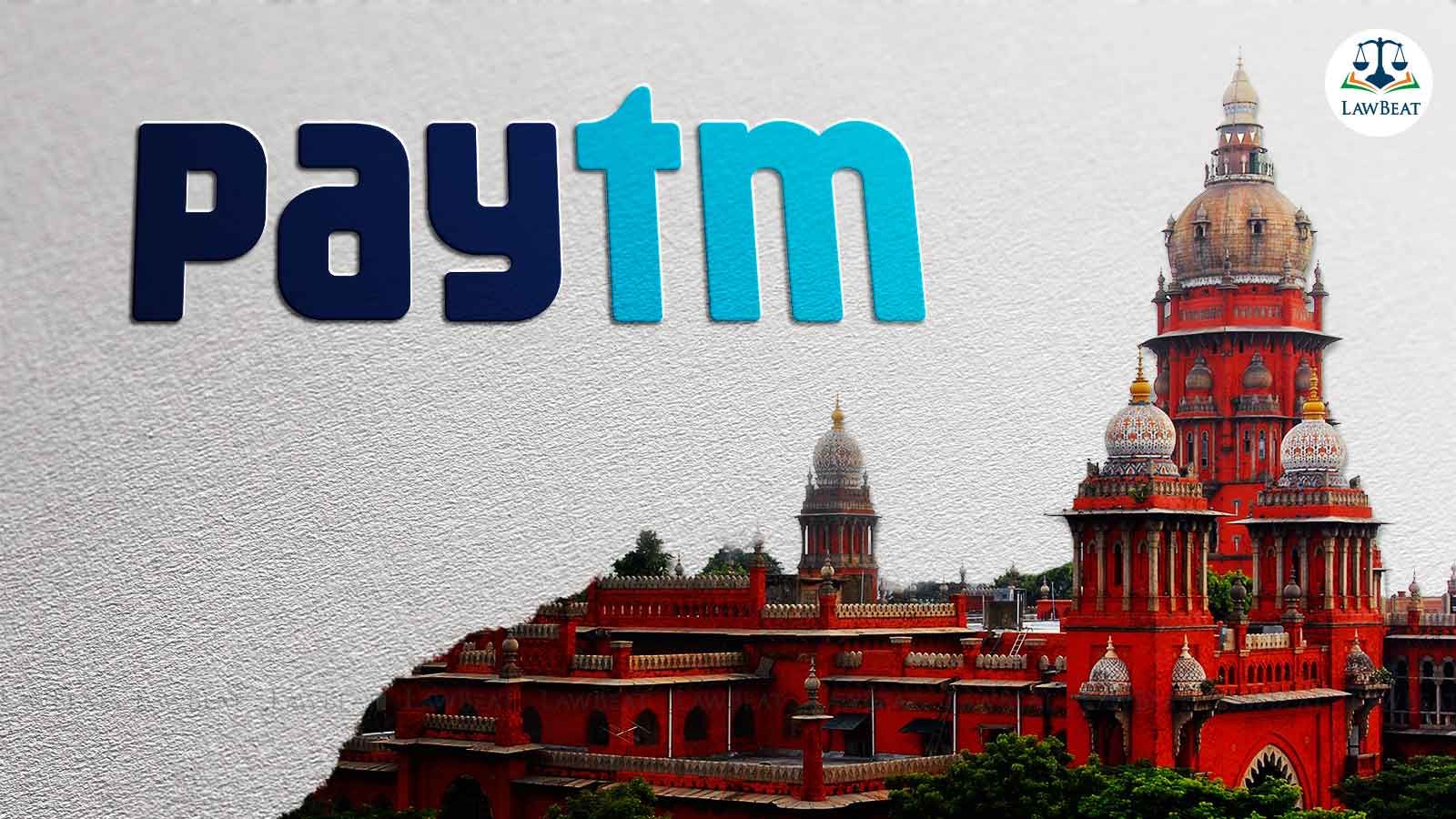Madras High Court orders RBI to direct Paytm to compensate doctor who lost Rs 3 lakh to hackers

A total of Rs 3 lakhs had been unauthorisedly transferred from the petitioner's bank account to the Paytm account of six unknown persons in four consecutive transactions within a few minutes.
The Madras High Court recently directed the Reserve Bank of India (RBI) to issue directions to the digital payment platform 'Paytm' to compensate a post-graduate medical student who lost Rs 3 lakh to fraudulent transactions.
The bench of Justice RN Manjula rejected the contention raised by Paytm that it could not be held liable as it is a mere facilitator and an online conduit provider for payments, having no technical or otherwise controlling control over the secured transactions. Paytm had also argued that since it is not a bank or other authority under Article 12 and hence it is not amenable to any writ jurisdiction.
Though the court agreed with the argument that Paytm could not be issued a direction under writ jurisdiction, since it is a private body, it held that the relief could be molded in such a way that directions are issued to the RBI to take action against Paytm for violating its own guidelines.
"A complaint had been made by the customer to her banker, and the banker had kept in touch with Paytm, therefore, Paytm can not disown its liability", the court held.
Accordingly, court directed the RBI to order Paytm to settle the loss suffered by the medical student within two weeks.
The petitioner, who was a resident doctor at the SRM Medical College at Trichy at the time of the incident, had a bank account with City Union Bank. There were around Rs 3,20,000 in her savings account.
On February 9, 2021, the petitioner got an SMS alert of hacking into her bank account. Two days later, two more such attempts were alerted after which she requested the bank to block her account. However, on February 13, 2023, she again received an alert of a similar attempt which was followed by another such alert on February 15. After each alert, the petitioner messaged her bank to block her account.
However, on February 15, 2023, within a few minutes, Rs 3 lakhs got unauthorisedly debited from her account.
The petitioner immediately lodged a written complaint with the bank and with the police as well. Later, when she got to know that some transactions had been made from her bank account to the Paytm account of six unknown persons, she registered a complaint with Paytm also.
However, the City Union Bank and Paytm shifted the blame upon each other and avoided compensating the petitioner.
Before the high court, the City Union Bank alleged that the fraud was not done through the bank and that the entire issue was with the UPI service provider i.e. Paytm, therefore, it could not be held liable.
On the other hand, Paytm submitted that transactions done through it are completely safe and secure and as per RBI's guidelines if a loss occurs to the customer owing to his/her own negligence by sharing the payment credentials, etc., then only the customer is liable.
Court observed that it was clear from the facts of the case that it was not the petitioner who had revealed the details of her PIN Number or other details to the fraudsters either knowingly or unknowingly.
Court further noted that the fraudsters had used the Paytm application to swindle money from the petitioner’s account and the City Union Bank had informed Paytm about the same within the requisite time period.
Therefore, while noting that as per the RBI guidelines, if a non-bank Prepaid Payment Instrument (PPI) issuer such as Paytm is unable to resolve the complaint and determine the customer's liability within 90 days, it is liable to pay the customer compensation as prescribed irrespective of whether the negligence is on the part of the customer or otherwise, court held Paytm liable to make out the loss suffered by the petitioner.
Case Title: Dr.R.Pavithra v. The Commissioner of Police, Vepery, Chennai and Others
